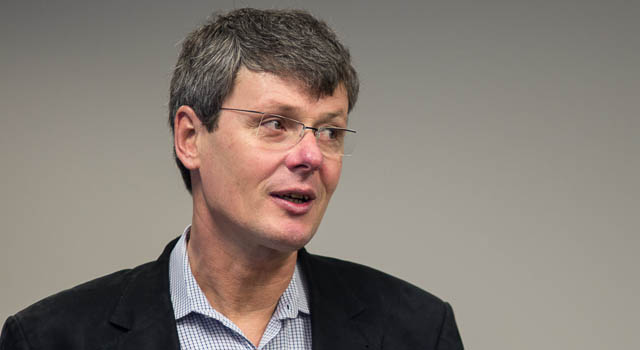
With its new BlackBerry 10 (BB10) platform, Canada’s BlackBerry isn’t simply looking to silence its critics by offering a smartphone as good as anything else on the market. It also wants the operating system to be the frontrunner in what CEO Thorsten Heins calls “the move from mobile communications to mobile computing”. In short, Heins wants BlackBerry to reinvent the smartphone and the uses consumers find for them.
In many respects, BlackBerry created the smartphone market. But it lost its position as the darling among tech-savvy consumers because it stagnated, became complacent, failed to innovate and failed to recognise how dynamic and fast-moving the mobile industry had become around it.
“We had to deal with lots of criticism,” Heins says. Consumers lambasted the company for failing to innovate when rival Apple, and later Samsung Electronics, began offering devices that far outstripped the capabilities of its own offerings. New devices and a new operating system were promised, but were frequently delayed. Finally, a fortnight ago, BlackBerry delivered its new platform — and announced two new devices, the Z10 and the Q10, with four more smartphones on the horizon.
Heins say the user experience was the key consideration in the development of BB10 and this is the “real difference” it offers. “It kills this paradigm of an application grid and the in-and-out navigation we see on other platforms.”
Confidence
Though he won’t disclose figures, Heins claims uptake of the Z10 in the UK and Canada, two markets where the phone has gone on sale already, has been “pretty encouraging”.
“It seems like we have built something that really hits the bull’s eye. We have something that is different and speaks to the audience we wanted to address. I am … confident in the decision to build our own new operating system from the ground up.”
Contrary to sentiment among some analysts, Heins says BlackBerry is by no means obsolete or a company in its death throes. “There is room for BlackBerry in the market. I doubt whether we would have achieved the same thing by, say, moving to Android or Windows Phone 8.”
The company hasn’t only had to build a new operating system over the past year; it’s had to do some serious introspection and clean up its house. BlackBerry has been renamed and restructured. Its top management team has been replaced — with cofounders Jim Balsillie and Mike Lazaridis leaving — and it’s retrenched 5 000 staff. None of these could be considered good omens, but Heins says they were “necessary hardships” and that the company today is better for them.
“A year ago, I felt the universe was in disarray. Now — in January — all of the stars seemed to align.”
BlackBerry 10 and its accompanying devices may be the change the company promised, but it’s going to have to keep innovating if its to remain abreast of – let alone pull ahead of – its smartphone competitors.
“We’re not done with our transformation,” Heins says. “There’s still work to be done to make this the ‘lean, mean, hunting machine’ I’m always talking about. This company is on the rise again. It’s on an exciting curve… I think people see that what we did in the last year was the right thing.”
He says BB10 has the company back into the smartphone race. “We’re on the court. Now we have to play and we have to win. We’re not done yet. We can never allow ourselves to stand still again.” — (c) 2013 NewsCentral Media
- Craig Wilson travelled to Canada as a guest of BlackBerry’s

